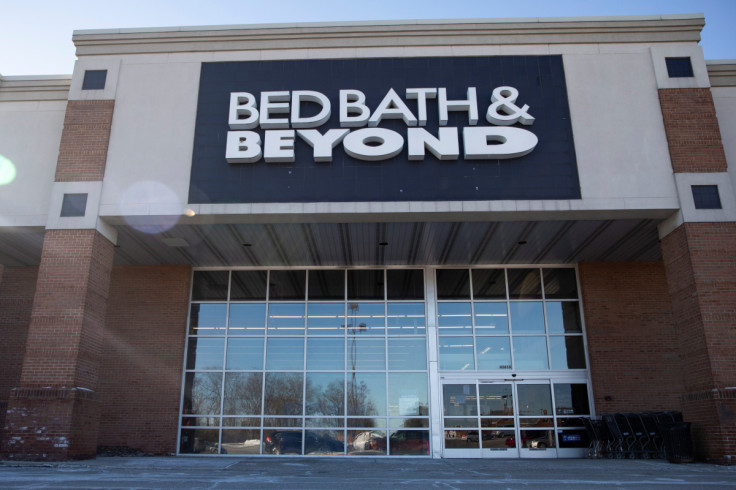Struggling Bed Bath & Beyond To Shutter 150 Stores, Cut Staff As It Looks To Survive

A number of changes are coming to struggling Bed Bath & Beyond (BBBY) as the home-goods retailer looks to right the ship amid lagging sales, including the closure of 150 underperforming stores and a 20% reduction in its workforce.
The company announced the strategic and business update on Wednesday as it looked to drive profitability and improve its balance sheet under Director and Interim CEO Sue Grove.
"We are working swiftly and diligently to strengthen our liquidity and secure our path for the future. We have taken a thorough look at our business, and today, we are announcing immediate actions aimed to increase customer engagement, drive traffic, and recapture market share," Grove said in a statement.
As part of the turnaround plan, Bed Bath & Beyond said it has secured more than $500 million in new financing, including expansion of a $1.13 billion asset-backed revolving credit facility and a new $375 million "first-in-last-out" facility, which are still subject to customary closing conditions.
Additionally, the retailer is preparing for an at-the-market offering program for up to 12 million shares of common stock, which it expects to use for a number of corporate purposes, including repaying back some its debt.
Bed Bath & Beyond's stock was down over 24% in premarket trading on Wednesday.
Costs also will be cut with a 20% reduction of staff across its corporate and supply chain workforce, which the company expects to save about $250 million in fiscal 2022. The company will also cut planned capital expenditures from $400 million to $250 million, focusing on technology, digital capabilities, and store maintenance.
As many as 150 "lower-producing" Bed Bath & Beyond namesake stores will be shuttered with continued evaluation of its portfolio of locations and leases as well as staffing, the company said.
Bed Bath & Beyond also plans to better serve its customers by bringing back popular national brands and introducing new emerging direct-to-consumer brands. The retailer said it will increase inventory penetration by 20% over the long term.
It will also discontinue its Haven, Wild Sage, and Studio 3B in-house labels while reducing the breadth of its six other private brands – Simply Essential, Nestwell, Out Table, Squared Away, H for Happy, and Ever Home – by 20%.
Slowed sales have contributed to Bed Bath & Beyond's financial woes, with same-store sales down 26% for the current fiscal quarter, the biggest decline it has seen after years of steady growth.
Other changes made by the company focused on leadership, with the Chief Operating Officer John Hartmann departing and the position of chief stores officer eliminated. Former CEO Mark Tritton and Chief Merchandising Officer Joe Hartsig were ousted by the board in late June.
© Copyright IBTimes 2024. All rights reserved.





















